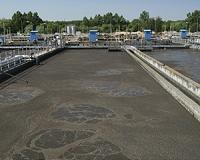 |
Los Angeles CA (SPX) Mar 04, 2011 Researchers have long promoted biofuels produced from crop biomass as an environmentally sustainable source of renewable energy. A recent study questions whether the potential climate benefit of sugarcane ethanol is diminished when emissions from land use management are considered. Scientists examined the sugarcane ethanol production systems to identify sources of greenhouse gas emissions. They found that land use change, fertilization, residue burning, and tillage had the largest impact on greenhouse gas emissions. According to Dr. Klaus Butterbach-Bahl, head of the Department of Atmosphere/Biosphere Interaction and Global Change at the Karlsruhe Institute of Technology, "It is also very likely that N2O emissions from sugarcane production systems have been seriously underestimated so far when using standard IPCC methodology. The diversity of sugarcane production systems and the remaining uncertainties with regard to the GHG balance of bioethanol from sugarcane clearly show that more measurements are needed for a full environmental assessment." In order to maximize greenhouse gas savings, Dr. Cardoso Lisboa and coauthors suggest changes at all stages of the sugarcane production. For example, simultaneous provision of irrigation water and fertilizer would allow the reduction of fertilizer rates in sugarcane production systems. Furthermore, the conversion from pre-harvest burning to no- or minimum-tillage systems with mechanized harvest may better maintain or even increase soil C and N stocks. Global Change Biology Bioenergy is a bimonthly journal that focuses on the biological sciences and the production of fuels directly from plants, algae, and waste.
Share This Article With Planet Earth
Related Links Global Change Biology Bioenergy Bio Fuel Technology and Application News
 Sewage Plant Waste Water As A Huge New Energy Source
Sewage Plant Waste Water As A Huge New Energy SourceWashington DC (SPX) Mar 03, 2011 The latest episode in the American Chemical Society's (ACS) award-winning podcast series, "Global Challenges/Chemistry Solutions," focuses on the discovery that household sewage has far more potential as an alternative energy source than previously thought. Scientists say the discovery, which increases the estimated potential energy in wastewater by almost 20 percent, could spur efforts to ... read more |
|
| The content herein, unless otherwise known to be public domain, are Copyright 1995-2010 - SpaceDaily. AFP and UPI Wire Stories are copyright Agence France-Presse and United Press International. ESA Portal Reports are copyright European Space Agency. All NASA sourced material is public domain. Additional copyrights may apply in whole or part to other bona fide parties. Advertising does not imply endorsement,agreement or approval of any opinions, statements or information provided by SpaceDaily on any Web page published or hosted by SpaceDaily. Privacy Statement |